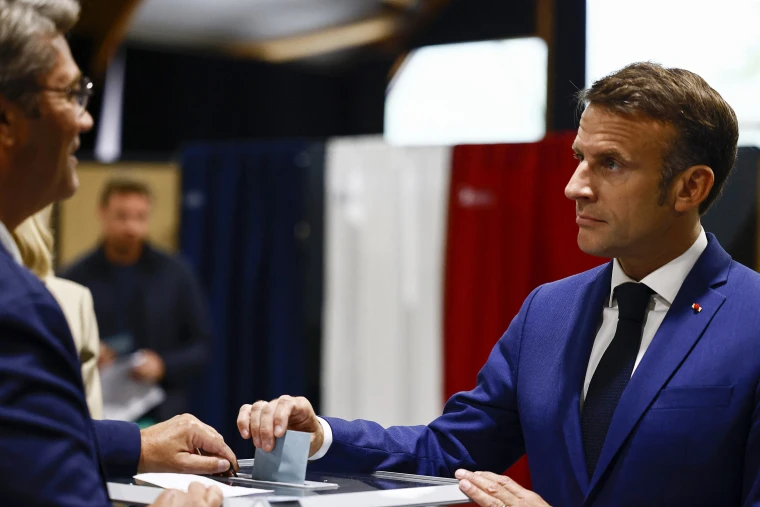Crucial French Elections: Far-Right’s Rise and Voter Discontent
French Parliamentary Elections: Far-Right’s Rise Amid Voter Frustration
Voters in mainland France cast ballots today in early parliamentary elections, potentially putting the government in the hands of far-right parties for the first time since the Nazi era. These elections, concluding on July 7th, could impact European financial markets, Western support for Ukraine, and the management of France’s nuclear arsenal.
Frustrated with inflation and economic issues, many French voters criticize President Emmanuel Macron’s leadership. Marine Le Pen’s National Rally, leading in pre-election polls, has tapped into this discontent. A new left-wing coalition, the New Popular Front, also challenges Macron’s centrist alliance.
The 49.5 million registered voters will choose 577 members of the National Assembly. Turnout at midday Sunday was 25.9%, higher than the 18.43% in 2022. Absentee ballot requests were significantly higher than in 2022.
Macron voted in Le Touquet, while Le Pen voted in Hennin-Beaumont. The country is divided between far-right and far-left blocs, with Macron in the center. Rising hate speech has marred the campaign. Voter Cynthia Justine emphasized the importance of voting, especially as a Black woman.
Macron called early elections after his party’s poor performance in the European Parliament election. Pre-election polls suggest the National Rally might win a parliamentary majority. This would force Macron into cohabitation, naming 28-year-old Jordan Bardella as prime minister, weakening Macron’s position.
Philippe Lempereur, a 64-year-old voter, expressed fatigue with politicians and their inability to address basic issues like shelter and food. The results of the first round will indicate voter sentiment, but the overall National Assembly makeup remains uncertain due to the complex voting system.
National Rally’s policies, including questioning citizenship rights and huge public spending promises, have caused market concerns. In New Caledonia, polls closed early due to extended curfews following violence. French overseas territories voted on Saturday.





Leave A Comment